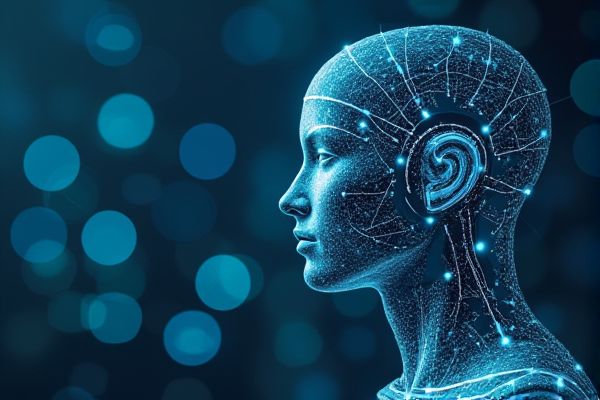
AI enhances diagnostic accuracy by analyzing medical images, detecting anomalies with precision. Machine learning algorithms process large datasets, identifying patterns that can predict patient outcomes and inform treatment plans. Virtual health assistants streamline patient interactions, providing timely information and reducing administrative burdens for healthcare providers. Personalized medicine benefits from AI-driven analytics, tailoring therapies to individual genetic profiles, ultimately improving patient care.
AI usage in healthcare
Precision diagnostics
AI usage in healthcare enhances precision diagnostics by improving accuracy in disease detection. Machine learning algorithms analyze vast amounts of medical data, leading to earlier identification of conditions such as cancer. Hospitals like the Mayo Clinic have implemented AI tools that provide recommendations based on patient data, optimizing treatment plans. This technology not only increases diagnostic efficiency but also holds the potential for better patient outcomes.
Personalized treatment plans
AI usage in healthcare can enhance personalized treatment plans by analyzing patient data to identify optimal therapies. This technology allows for the integration of genetic information, lifestyle factors, and medical history, tailoring interventions accordingly. Institutions like Mayo Clinic are already exploring these capabilities to improve patient outcomes. The potential for greater efficiency and effectiveness in treatment offers a significant advantage in managing chronic diseases.
Predictive analytics for patient outcomes
Predictive analytics in healthcare can lead to better patient outcomes by identifying potential risks and tailoring interventions. For instance, an institution like the Mayo Clinic employs these technologies to forecast patient needs and optimize treatment plans. This approach allows for more precise resource allocation and personalized care strategies. The possibility of improving efficiency and outcomes through data-driven insights remains a significant advantage in modern healthcare.
Medical imaging enhancement
AI can significantly improve medical imaging through enhanced image quality and faster analysis. For example, institutions like Stanford University are using AI algorithms to assist radiologists in detecting abnormalities more accurately. These advancements can lead to earlier diagnosis and better treatment planning for patients. By leveraging AI, healthcare providers may have the opportunity to reduce costs and improve overall patient outcomes.
Automated administrative tasks
AI usage in healthcare can streamline automated administrative tasks, potentially increasing efficiency and reducing errors. For instance, systems like electronic health records (EHR) can be optimized through AI to enhance patient data management. This integration could allow healthcare providers to focus more on patient care instead of paperwork. The possibility of cost reduction in administrative overhead is a potential advantage for institutions like hospitals and clinics.
Virtual health assistants
Virtual health assistants have the potential to streamline patient interactions in healthcare environments. They can provide immediate responses to patient inquiries, reducing wait times and enhancing overall satisfaction. Institutions like Mayo Clinic have started integrating such technology to improve care delivery. The chance to utilize these AI systems could lead to more efficient resource allocation and better patient outcomes.
Remote monitoring and telehealth
AI usage in healthcare can enhance remote monitoring and telehealth services by providing data analysis and predictive insights. For example, AI algorithms can analyze patient vital signs in real-time, identifying potential health issues before they escalate. This technology increases the possibility of timely interventions, improving overall patient outcomes. Institutions like the Mayo Clinic are exploring these advancements to maximize the benefits of AI in managing chronic diseases.
Drug discovery and development
AI has the potential to significantly enhance drug discovery and development processes. By utilizing machine learning algorithms, researchers can analyze complex datasets to identify potential drug candidates more efficiently than traditional methods. For example, institutions like the MIT Media Lab are exploring AI's role in predicting drug interactions and optimizing formulations. This could lead to faster approvals and reduced costs in bringing new therapies to market.
Natural language processing for EMR
AI implementation in healthcare can streamline processes and improve patient care through efficient data management. Natural Language Processing (NLP) can analyze Electronic Medical Records (EMR) to extract valuable insights, enhancing clinical decision-making. This technological advancement offers the potential to reduce administrative burdens on healthcare providers. For instance, institutions like Johns Hopkins are exploring NLP's capabilities to optimize patient outcomes.
AI-driven surgery assistance
AI-driven surgery assistance can enhance precision in surgical procedures, reducing risks and improving patient outcomes. For instance, institutions like Johns Hopkins have begun integrating AI technology in their operating rooms, leading to more efficient surgical workflows. The use of AI tools may enable surgeons to access real-time data, thus minimizing potential complications. This technological advancement presents opportunities for better training and outcomes in medical education and practice.
 techknowy.com
techknowy.com